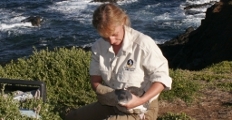Public Interest Disclosures (previously known as "whistleblower" complaints) refer to any communication that discloses improper conduct by Phillip Island Nature Parks, its Board or staff, or its service providers. This can include conduct that is illegal, corrupt, unethical, or harmful to the public interest.
Such disclosures can be made by employees or members of the public and are protected by the Public Interest Disclosures Act 2012 (Vic).
What can a disclosure be made about?
Disclosures may be made about 'improper conduct' on the part of a public body or its employees and Board members. Disclosures may also be made about 'detrimental action' taken (or suspected to be taken) in reprisal or in connection with a disclosure made about improper conduct.
The conduct or action being disclosed may have taken place, still be occurring, or may be believed to have occurred or be occurring.
Please visit the IBAC website for more information on how to make a public interest disclosure and what protections are available.
Who can make a disclosure?
Any individual (i.e. not an organisation or company) may make a disclosure under the Act. The individual could be a person within the Nature Parks or any member of the public.
Disclosures may be made in a number of ways set out in the Act, including anonymously, in writing or verbally. A discloser need not identify the person or body about whom the disclosure is made.
How to make a disclosure
The Nature Parks is not able to receive disclosures made under the Act.
To make a disclosure about the Nature Parks, its Board members or employees, this disclosure must be made directly to the IBAC [see How to notify IBAC below].
If the Nature Parks believes a disclosure may be a public interest disclosure made in accordance with the Act, it may direct the individual(s) to make that disclosure to the IBAC.
The IBAC will deal with the disclosure.
Role of the Nature Parks
It is important to note that the IBAC is not required to contact the Nature Parks about any disclosure made and therefore the discloser should not discuss any disclosure made to the IBAC with the Nature Parks or any person in the Nature Parks unless the discloser has first obtained the permission of the IBAC to do so, or unless the IBAC has directed the discloser to do so, or the IBAC has contacted the Nature Parks to provide it with information in order to allow the Nature Parks to provide the discloser making the claim with any necessary welfare and support.
Nature Parks has established internal procedures to facilitate and encourage the making of disclosures under the Act, and how the welfare of persons connected with public interest disclosures will be managed. This is available upon request from info@penguins.org.au.
Confidentiality
The Nature Parks takes its obligations under the Act seriously. This includes the requirement to protect the identity of the discloser and the matters disclosed by a discloser. Maintaining confidentiality in relation to public interest disclosure matters is crucial, among other things, in ensuring reprisals are not made against a discloser. It is a criminal offence under the Act to disclose information connected with a disclosure made in accordance with the Act, including the identity of the discloser. The penalties for breaching confidentiality obligations include financial penalties and imprisonment.
How to notify IBAC
Notifications are generally made in writing. However, if you think the matter is serious or requires urgent attention IBAC can also be contacted by phone.
Phone 1300 735 135.
Post GPO Box 24234, Melbourne VIC 3001
Email info@ibac.vic.gov.au
Website www.ibac.vic.gov.au
Reports that do not meet IBAC’s public interest disclosure criteria may be reported to info@penguins.org.au, for the attention of the Disclosure Coordinator





















